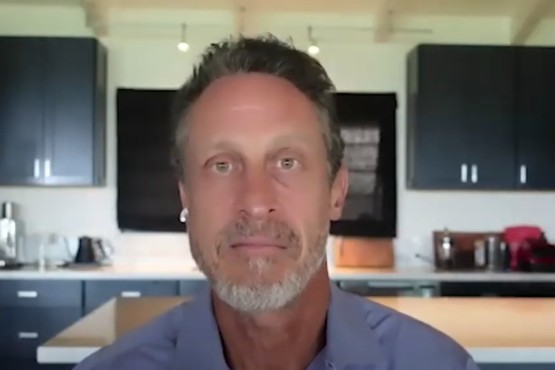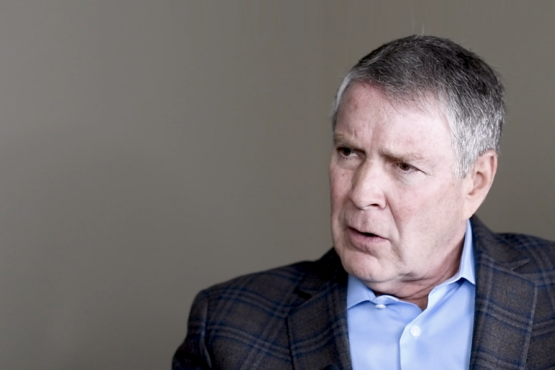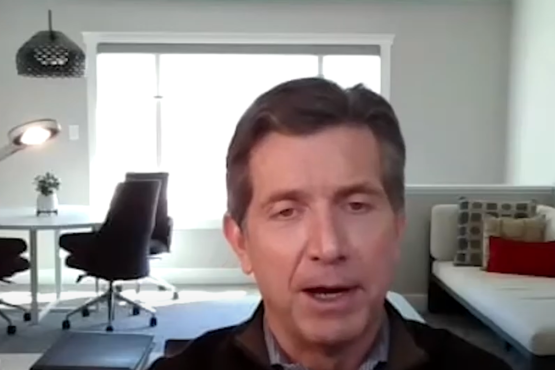Welcome to A Second Opinion podcast where we are rethinking American health. I’m your guest host, Dr. Kavita Patel. Now you might be surprised to hear a new voice this week, but like you, I’ve been following Senator Frist podcast throughout the entirety of the first season and I have really enjoyed reacquainting myself with colleagues and learning new perspectives from leaders on the cutting edge of healthcare policy, medicine and innovation.
A little bit about myself, I’m a nonresident fellow at the Brookings Institution, and an advisor to the bipartisan policy center. I’m also a practicing primary care internist in Washington D.C. and previously served in the Obama administration as the director of policy for the Office of intergovernmental Affairs and Public Engagement in the White House. I live in Washington D.C. and know for a fact that this podcast is a source of conversation amongst my peers.
I’m also proud to be a long-time friend, mentee and colleague of Senator Frist. So I am very excited that he invited me to participate with him on the podcast. As I was listening to the first season, I made some notes on some of the most important insights that I learned from the senator’s interviews with his guests. From there I created a compilation of what I perceive to be some of the more standout moments.
This episode centers around the rapidly evolving world of medicine, specifically as it pertains to care delivery at institutional and personal levels. First one is Dr. Toby Cosgrove, who is an acclaimed cardiothoracic surgeon by training. But later in his career took on the daunting challenge of running the Cleveland Clinic, one of our nation’s preeminent centers of healthcare. His leadership as president and CEO ushered in the most successful years in Cleveland Clinic history. Now he is taking on a new challenge as executive advisor to the Google Cloud Healthcare and Life Sciences team. Listen, as Dr. Cosgrove explains some factors that have led to a huge rise in doctor burnout in the 21st century.
Toby Cosgrove: I think first of all, the loss of autonomy. Doctors used to be able to practice all by themselves and now in order to achieve what they need to achieve, they have to be dependent upon a lot of other people. I think the second thing was the Affordable Care Act, which began to put quality metrics in. Doctors were not used to being measured around their quality or their outputs or results, and that was a shock for them.
Toby Cosgrove: Third factor I think is clearly the electronic medical record and they’ve been now in turned into typists and they have a tremendous number of things that they had to fill out. They don’t like that. I don’t blame them and patients don’t like it. And the fourth thing is the explosion in knowledge and just huge amounts of knowledge that they’re expected to get their heads around. Just as far as doctors are concerned, there are now 5,300 medical journals putting out 800,000 articles a year. Nobody can keep up with all of that.
Senator Frist: No, no.
Toby Cosgrove: So you know, what can we do about it? I think it’s a $64,000 question. I think there’s, we’re not going to be able to roll back the autonomy. We’re not going to be able to roll back the Affordable Care Act. The amount of knowledge is going to continue to explode. The electronic medical record we can really begin to do something for, and I think as far as electronic medical record’s concerned, I look for natural voice recognition to be the technology that helps that.
Toby Cosgrove: And in the meantime, scribes and various remote scribes are helping physicians. I think we’re trying to take as much work away from physicians as we possibly can by having other people work at the height of their licensure, nurses, technicians, et cetera. We have also brought in things like Dragon for dictation. We have hired a bunch of pharmacists to do refills. We have insisted that doctors give them … Would take one day a year to go get their physicals and take care of themselves.
Senator Frist: Take care of themself.
Kavita Patel: Dr. Rushika Fernandopulle, who is a good friend and the co-founder and CEO of Iora Health is a Harvard trained physician who serves on the staff at the Massachusetts General Hospital and on the faculty of Harvard Medical School. His groundbreaking company Iora Health solves for some of the most pressing problems in our healthcare system today, including physician burnout and addressing social determinants of health. In this clip, Dr Fernandopulle describes his unique approach to helping patients stay on top of their care through the use of health coaches.
Rushika F.: The typical business model in U.S. Healthcare is fee for service in primary care, is you get paid per doctor sick visits. You’ll walk in the door in the morning and you got 35 patients booked and you got whatever, 12 minutes. And you do the best you can, you come up, you prescribe something, you hand the prescription to the patient, you turn your brain off. You get paid for telling them what to do, but that’s it.
Senator Frist: Yeah.
Rushika F.: The hard part about chronic disease is not telling people what to do. It’s getting them to do it. So to realize it’s what we as doctors are trained to do is that first part is diagnose and tell you what to do. But you needed a human being to help you actually do it. What are the barriers? Teach you about the disease, teach you about the treatment, answer your questions, hold your hand when that’s the right thing to do. Kick you in the behind when that’s the right thing to do.
Rushika F.: And we are not, those people don’t need to be doctors or nurses even. They just need to have empathy and so we have three of these health coaches per doctor. They get to know their patients really well. We also say the patients come for the doctor, they stay for the health coach.
Kavita Patel: The next podcast is from my favorite a friend as well, Dr. Marty Makary, who’s a New York Times bestselling author, Johns Hopkins gastrointestinal surgeon and professor of health policy. Marty’s research has led to actionable solutions that reduce waste and over treatment, improving quality of care to the patient and saving our healthcare system millions of dollars. Dr. Makary is known for his checklist manifesto and its impact on patient care and hospital culture, which he discusses here with Senator Frist.
Marty Makary: Peter Pronovost invented the idea of using a checklist in the ICU to review daily goals. And when he started using it for central line placement, that is doing the things we’re supposed to be doing and we both put in hundreds of central lines. There’s certain things we should be doing, but we’re so rushed. Sometimes we were just so into getting it done quickly.
Marty Makary: He protocolized it in a checklist and I started on faculty at Johns Hopkins, right when that started. He said, “Marty, for your project, you may want to consider making a checklist for surgery for the operating room. You’re a surgeon.” He was an ICU doctor and so I put together a checklist. We published it, we piloted the thing at Hopkins and two of the hospitals. It took some real negotiating to get my colleagues in surgery to use it.
Marty Makary: Initially they didn’t love the idea. I mean, we’re asked to do a lot of stuff. It was kind of seen as a burden. But then I invited them to be a co-author on a publication, on the checklist, on a trial, and then they were very excited to be using the checklist. And we got a grant too that helped fund some of this. So they were happy to be a part of a grant, happy to be a part of a publication. And as they used it in the trial, they realized we really like this.
Marty Makary: The nurses were saying, “No one’s ever asked me for my name and 10 years. I’ve been working with this surgeon, he doesn’t even know my name, because we rotate a lot.” And it created this great culture where we wanted a culture of speaking up. It’s a safety net for mistakes and things that go wrong. And around that time the World Health Organization said, “Hey, we’re forming a committee to talk about surgery and safety. We’ve asked Atul Gawande to head the committee, will you come and present your publications on the checklist?”
Marty Makary: Well, Atul had his own suggestion, but eventually he fell in love with the idea of a checklist. And he’s been terrific in disseminating the concept in the book, The Checklist Manifesto. He’s been a great advocate for it, doing good work right now with this new venture.
Kavita Patel: Dr. Jeffrey Patton is the president of physician services of OneOncology, a rapidly growing nationwide partnership of independent community oncologists serving patients in the communities in which they live. Dr. Patton serves as CEO and chairman of National Base Tennessee Oncology, one of the largest community oncology practices in the United States. And a number of my good friends work for and with Dr. Patton. In this interview with Senator Frist Dr. Patton discusses the success he’s seen in combination therapy with regards to preventing the mutation of chronic diseases.
Jeffrey Patton: More and more we can tell patients, “This is the genetic driver of what’s caused your cancer and this is a therapy targeted to that driver.” That’s one. The second is, if we can’t do that for certain cancers, we’ve learned that we can unharness the patient’s own immune system to do what it’s designed to do, which is kill infection and kill cancers. And for about a 25% subset of patients it’s a tremendous innovation. We’ve been able to not cure HIV, but literally make it a chronic disease.
Jeffrey Patton: But it wasn’t one drug. It took combination therapy to keep that disease re-mutating and outsmarting the therapy that would work for a while. I think we’re going to look at the same thing in oncology where it’s going to take a cocktail of medicines to keep that cancer from outsmarting our therapy.
Senator Frist: Yeah.
Kavita Patel: Sam Quinones is a journalist storyteller and author of the enthralling book, Dreamland: The True Tale of America’s Opiate Epidemic. Dreamland won a National Book Critics Circle Award for the best nonfiction book of 2015. Sam lived in Mexico for 10 years as a freelance writer before returning to the U.S. to cover immigration, drug trafficking, neighborhood stories, and gangs for the LA Times. In this short excerpt, Mr. Quinones discusses the impact marketing has had on the pharmaceutical industry’s relationship with doctors, supply chains, and bottom lines.
Sam Quinones: Arthur Sackler really revolutionized pharmaceutical marketing by beginning this idea that pharmaceutical salespeople had to be in constant touch with doctors through that, those early, early strategies that they’re later very much refined years later. He turned Valium into the first billion dollar drug.
Kavita Patel: Thanks for listening to today’s episode of Second Opinion podcast. You can subscribe to A Second Opinion on Apple podcasts or wherever you are listening right now, and be sure to rate and review A Second Opinion so others can discover what you’re already enjoying. You can get more information about the show, it’s guests and sponsors at A Second Opinion podcast.com. I’m Dr. Kavita Patel and I look forward to being with you again soon.


